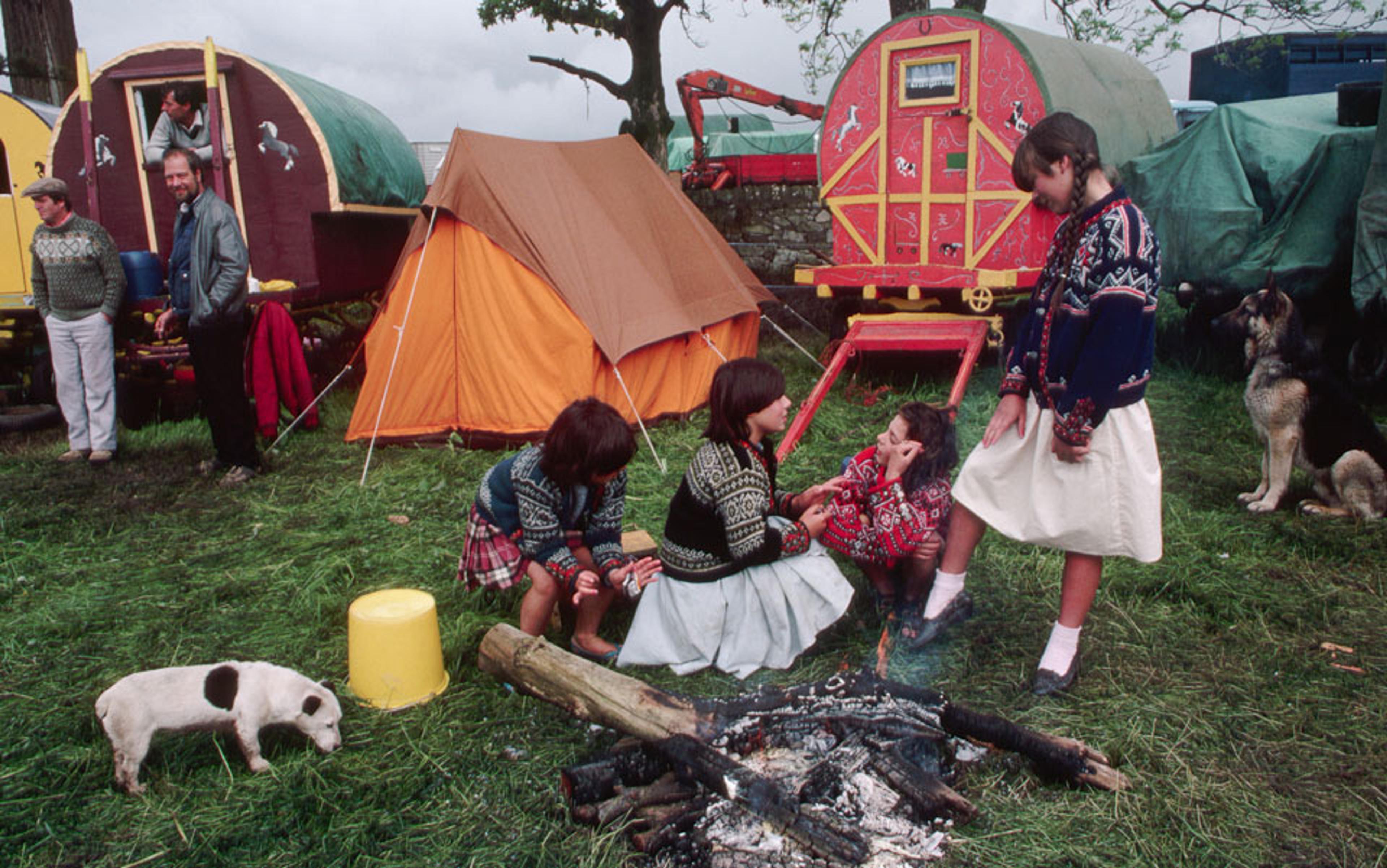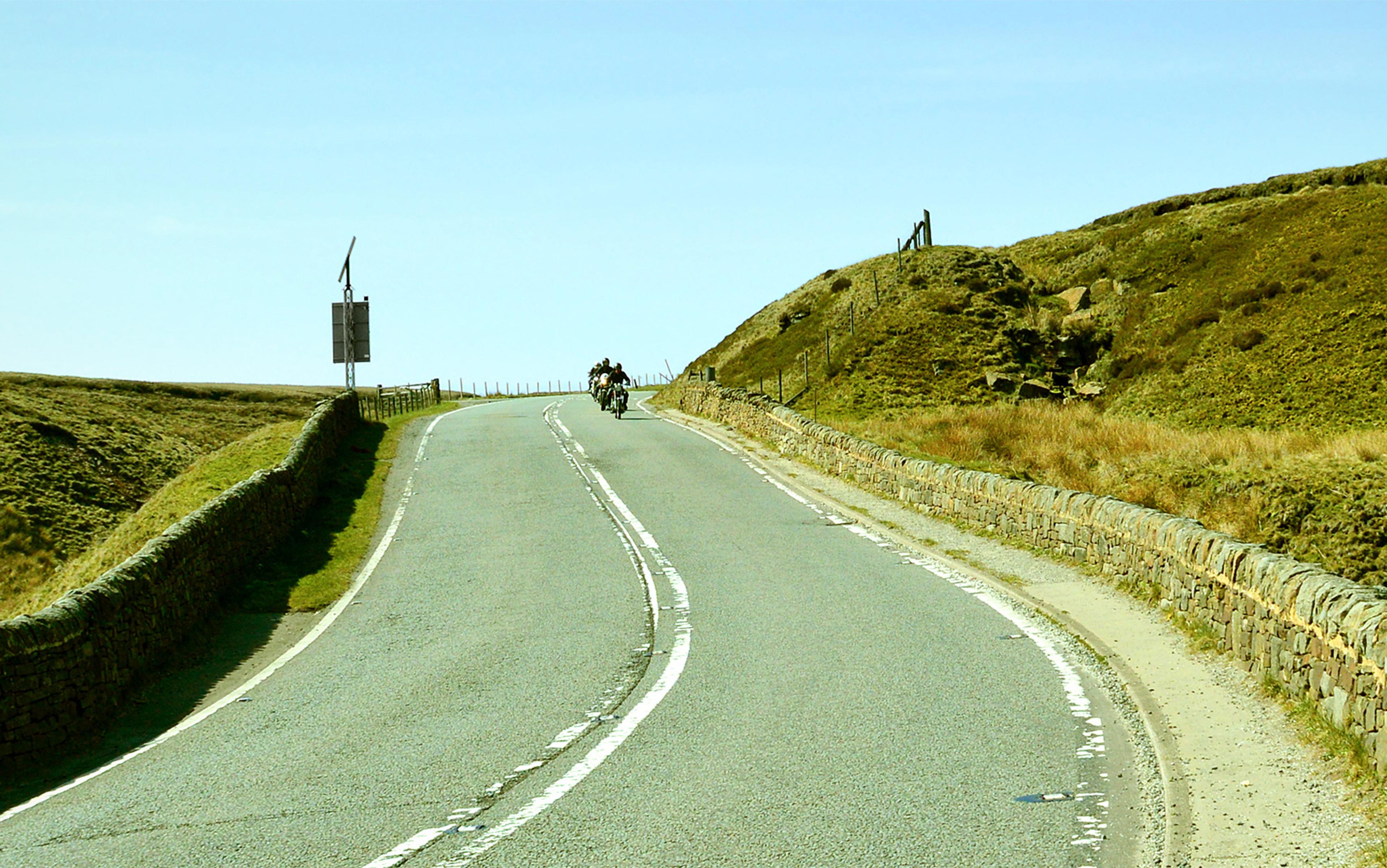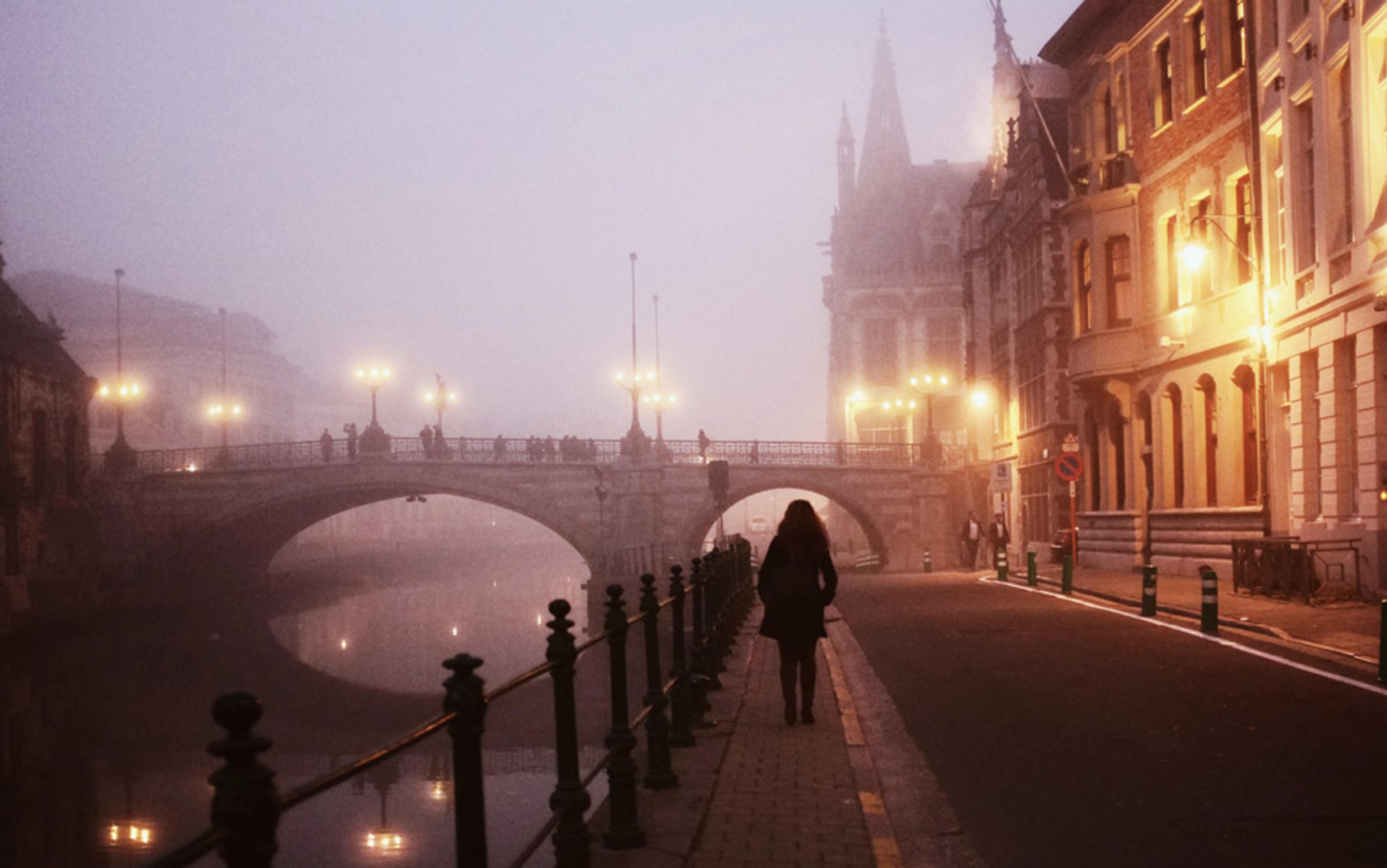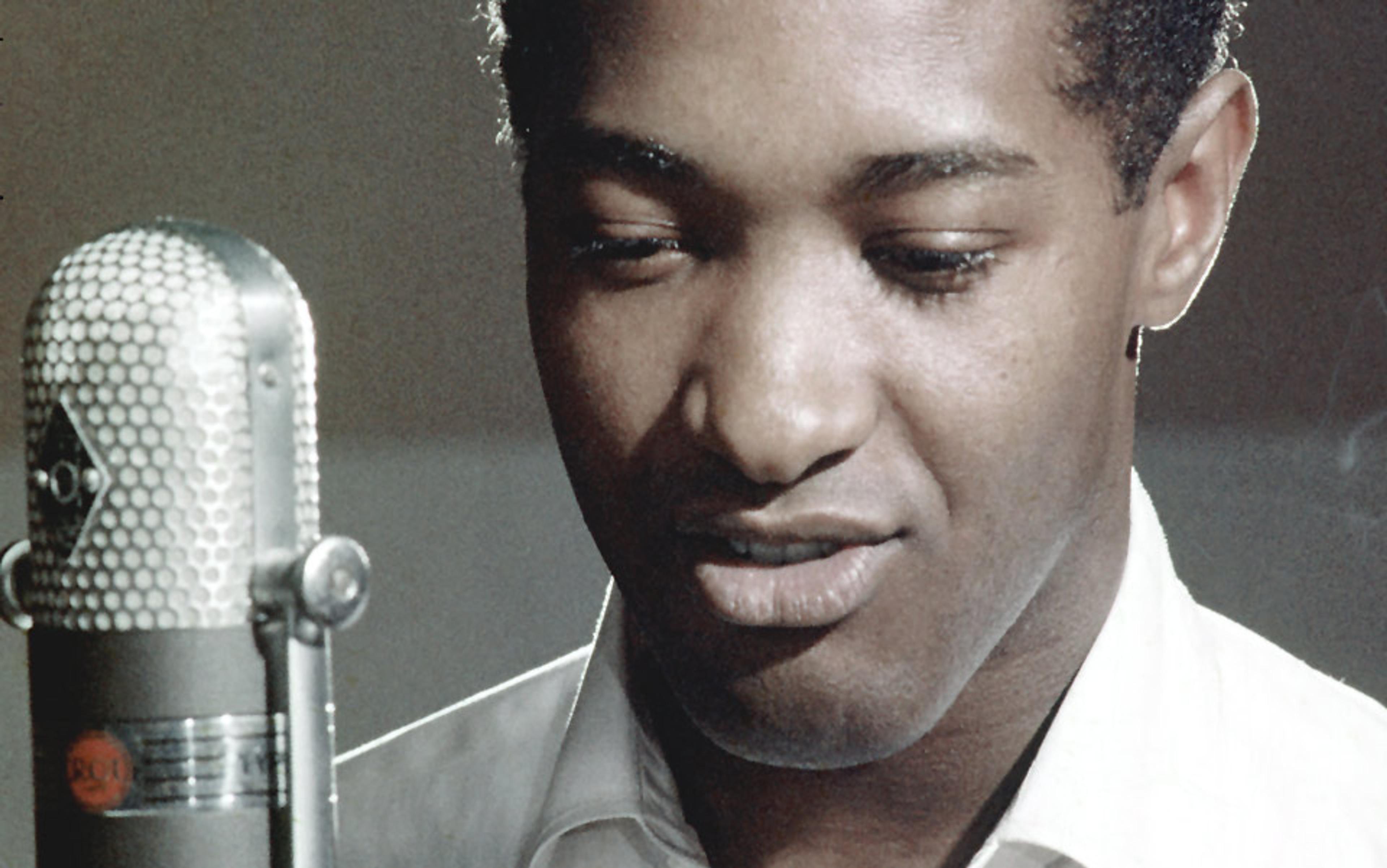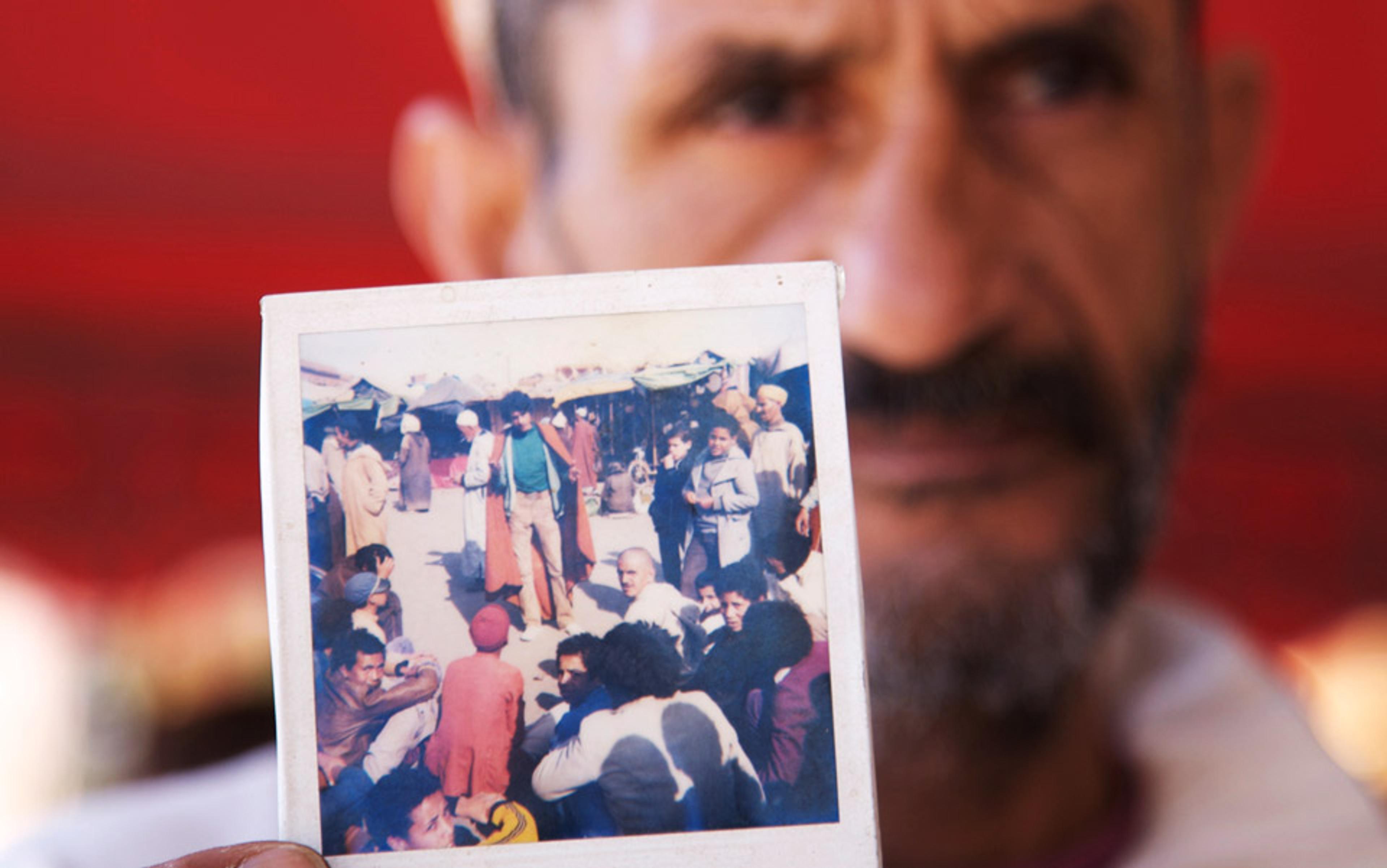The first time the London-born folk singer Sam Lee met Freda Black, he thought she was dying. It was December 2011 and he had finally secured an introduction, three years after hearing about her through a chance encounter with some of her relatives. Lee was keen to hear the traditional songs that had been passed down through generations of her Romany family, but Black wasn’t eager to sing. ‘She was lying on a sofa under a blanket,’ Lee says. ‘She was very reluctant, and then slowly she started to open out. Since I’ve known her, she’s blossomed and become stronger and stronger. Every time I come, the songs get bigger and bigger.’
One humid June afternoon, Lee fills his green Renault Kangoo with curious friends — the singer-songwriter Lisa Knapp, a music teacher named Josh Geffin, and Anna Ling, a choirleader — for another visit to the 86-year-old singer’s home. We’re headed for the small Hampshire village of Headley, two hours south-west of London, and it’s clear that there is nothing Lee would rather be doing. ‘I can’t wait to be sitting on her carpet with a cup of tea in my hand, eyes half-closed, listening to her sing,’ he says with a boyish grin.
Lee is a tall, dynamic, inexhaustibly enthusiastic 33-year-old who has swept through Britain’s folk scene like a summer storm. Last year saw the release of his debut album, Ground of Its Own, which set ancient songs to innovative new arrangements. It made the shortlist of the prestigious Mercury Music Prize, and Lee has received blessings from folk elders such as Shirley Collins and the producer Joe Boyd. En route to Headley, we take a surreal detour to the country home of Pink Floyd’s Roger Waters, where Lee has to collect a bag that he left after performing at the wedding of Waters’s daughter, India.
Singing folk songs takes up an increasing amount of his time, but Lee is equally committed to the much less glamorous and lucrative work of collecting them. Whenever he can, he drives into the countryside to visit Traveller encampments and ask to hear any old songs they might know. ‘That’s my community, my religion,’ he insists. The transport and recording technology might have improved but the process is fundamentally the same as it was when the folklorist Cecil Sharp cycled around Somerset with his notebooks in the early 1900s, or when father-and-son team of John and Alan Lomax traversed the American South with their primitive tape recorder in the 1930s, gathering the corpus of folk and blues without which rock music as we know it would not exist. You can hear their legacy, both directly and indirectly, in the work of Bob Dylan and Joan Baez, Led Zeppelin and the Rolling Stones, the White Stripes and Moby. These men were the bottlenecks through which the prehistory of popular music flowed.
Song-collecting still takes place in other corners of the globe but in Britain it has dwindled almost to nothing, as traditional singing has waned. ‘There really isn’t anyone of my generation doing it,’ says Lee as we wind through the damp green countryside. ‘There are a few PhD students studying folk music but there’s nobody else doing the great romantic down-the-byways knocking-on-doors thing. I’d like to spend the rest of my life doing this if I could. Fuck fame and fortune. This is far more important.’
I first met Lee in January at a conference organised by his new Song Collectors Collective. We were in a freezing cold church hall near his home in Dalston, east London. The day’s penultimate session was Lee’s interview with Freda, a small but imposing figure with full brown hair, hoop earrings and a matriarchal air. She talked about how she was born in Somerset on Christmas Day 1927 (‘the same hour as our Lord’); about long days picking hops and strawberries in the summer, and selling lace and brooches in the winter; about hearing old songs from her father-in-law around the bonfire at night. ‘It was a beautiful life,’ she said, ‘a lovely life. You could go anywhere.’ When Lee queried some of her more fanciful tales, drawn from Romany lore, she replied: ‘It’s all true, my love, all of it. The truth shames the devil.’
Unaccustomed to public performance, she sang in a soft, tremulous voice, eyes closed, touching her brow as if to coax out each verse from her memory. Lee looked rapt throughout: protective and solicitous but never condescending. He asked her how many songs she knew. ‘I ain’t counted them,’ she replied with a shrug. ‘You ’ave!’ (He has indeed: so far there are 90.)
He was dancing in a burlesque show in London’s West End when an album by the Watersons, the first family of British folk, caught his ear and made him hungry to learn the songs’ origins
As to how a middle-class Jewish boy from north London became the foremost song collector of his generation, Lee has some ideas. He remembers being enthralled by ritual communal singing in the synagogue as a child, and being sent to visit Holocaust survivors and hear their testimonies. ‘Stories, always stories,’ he says, sitting on the breezy balcony of his flat three weeks after our trip to Headley. ‘I felt that I was from a community that really revered the elders and the history. Every time one of them died, I wish I’d listened harder.’
Lee didn’t enjoy school but he took solace in the Forest School Camps he attended during summer holidays, where children learnt outdoor skills and sang folk songs around the campfire. He was prone to musical obsessions — first Michael Jackson, then Joni Mitchell — but his love of folk took root slowly. After school, he studied art, dance and anthropology, and taught wilderness living. In 2004, he was dancing in a burlesque show in London’s West End when an album by the Watersons, the first family of British folk, caught his ear and made him hungry to learn the songs’ origins. ‘I was trying to go back, back, back,’ he says. ‘Then I found the field recordings and didn’t listen to anything else.’ While continuing to dance at night, he spent his days volunteering at Cecil Sharp House, the north London headquarters of the English Folk Dance and Song Society (EFDSS).
Cecil Sharp was not Britain’s first song collector but he was the most tireless, messianic and influential. On Boxing Day 1899, this sickly, 40-year-old composer and music teacher witnessed his first traditional Morris dance and was immediately fascinated by the ritual, the music and the island history buried within. Throughout the Victorian era, printed broadsides and the rise of music hall (a variety format similar to American vaudeville) had overshadowed the oral folk tradition. And yet, like some thorny, tenacious weed, it thrived through neglect. You just had to go out and look for it. The desk-bound academic Francis James Child, had recently compiled the 10-volume folk song canon known as the Child Ballads (1882-98) without hearing the songs performed. Sharp, however, wanted to get his boots dirty.
Between 1903 and 1907, he cycled around Somerset’s informally educated rural communities, finding, transcribing and preserving traditional songs. He recorded his discoveries in the pioneering book English Folk Song: Some Conclusions (1907), performed equally important work overseas in Appalachia, and founded the English Folk Dance Society (which became the EFDSS). When he died in 1924, he had collected almost 5,000 songs.
By Edwardian standards, the vegetarian, socialist Sharp was progressive. By the 1970s, left-wing scholars such as Dave Harker were accusing him of making the songs serve ‘nationalistic sentiments and bourgeois values’ instead of the people themselves. It’s true that in his eagerness to revive and promote ‘the song created by the common people’, Sharp travestied their oral roots with self-penned piano accompaniments, sanitised the more risqué lyrics to suit Edwardian mores, and discounted songs that were too hybridised for his purposes. Most controversially, he ignored African-American music in Appalachia. But, as his defenders insist, without Sharp’s missionary zeal, these songs might never have been collected at all. Similar arguments have raged around song-collecting ever since: invaluable work depends on imperfect individuals.
The songs don’t exist inside you, they’re around you, and when you sing you breathe the song in from the ghosts that surround you
While Sharp was scouring Somerset, the slightly younger Harvard scholar John Lomax was pursuing cowboy ballads in Texas. In 1933, after a long break from collecting, he secured a book deal and returned to the road with his teenage son Alan. Unlike Sharp, the Lomaxes had the technology to make field recordings. ‘For the first time, America could hear itself,’ said Alan. One of their discoveries even became a minor celebrity: a convicted murderer and one-man treasure chest of song named Lead Belly, who gave the canon such standards as ‘Black Betty’, ‘The Midnight Special’ and ‘Where Did You Sleep Last Night?’
John Lomax’s racial preconceptions led him to celebrate the ‘primitive’ emotions in African-American songs and overlook the rest, including, for the most part, protest songs. But his son Alan, much more progressive and idealistic, grew into the greatest collector of all time. He championed folk song from around the world as a promoter, producer, scholar, author, lecturer, oral historian, radio DJ, documentary-maker and political campaigner: John Szwed subtitled his biography of Alan Lomax The Man Who Recorded the World (2010). During Alan’s time in Britain in the 1950s, the satirical magazine Punch published a cartoon in which a singer complained: ‘I’ve got those Alan-Lomax-ain’t-been-round-to-record-me blues.’ In 1964, when the folk revival he enabled was in full swing, Alan wrote in a festival programme: ‘[Folk] is perhaps our most important, serious and original contribution to world musical culture. These performers are its only carriers and they deserve to be listened to with respect and love and delight.’
In 2005, having done his homework, Lee sought out mentors, starting with an octogenarian song collector even more divisive than Sharp. Peter Kennedy had been a crucial figure in Britain’s own folk revival, working closely with Alan Lomax, but he was also a notorious copyright grabber. ‘I think he upset every person in his entire life because he was a very difficult and odd character,’ says Lee. ‘Yet I kind of identified with him as a driven, single-minded renegade: if this needs to happen, I need to do whatever I can. It was while hearing his stories that I thought, OK, this is the journey I want to take.’
A year later, Lee encountered his first authentic folk singer in suitably dramatic circumstances. After seeing the celebrated Scottish balladeer Stanley Robertson perform at a festival in the northern coastal town of Whitby, he followed him out of the venue, down to the harbour, and up 199 steps to the top of a windswept cliff. There he found the formidable 66-year-old clutching his weak heart beneath a floodlit whalebone arch. Lee introduced himself. ‘I know a thousand ballads!’ Robertson roared. Lee, awestruck, said that he wanted to learn them all.
A few months after this meeting, Robertson suffered a serious heart attack, coming very close to death. ‘I think he travelled back to his elders and retrieved the songs he heard as a child,’ Lee says. ‘That was when he said, OK Samuel, this is how we’re going to do it.’ Robertson took Lee to a fabled highway outside Aberdeen where he ceremonially inducted him into the song-carrying tradition, handing him a ring, a drinking vessel and a talismanic pebble, the last of which Lee still carries with him. ‘Stanley was on another level of spiritual and cultural enlightenment,’ Lee marvels. ‘He spoke Romany and Traveller cant [dialect]. He had psychic abilities that were unparalleled. He knew about astral travelling.’ I sound a note of atheist scepticism and Lee smiles. ‘I was exactly like you,’ he says. ‘For Jews, death is death: there’s no afterlife. But the psychic behaviour was irrefutable. Everything that’s happened to me, he predicted.’
After Robertson’s death in 2009, Lee heard how his spirit continued to visit surviving relatives, who would tell him: ‘Fuck off, Stanley, you’re deid! I cannae sleep!’ For Robertson, singing itself was a kind of psychic communion with the dead. ‘Stanley called it the maizie,’ Lee says. ‘This quality of bringing in the ancestors. The songs don’t exist inside you, they’re around you, and when you sing you breathe the song in from the ghosts that surround you.’
Robertson was Lee’s introduction to Traveller culture. He felt instantly at home. ‘They’re kind of the American Indians in Britain: indigenous people with their own language, customs, music, spirituality, relationship to the land. I immediately had this affinity. I love the danger, the risk, the tempestuousness, and the way they wear their hearts on their sleeves.’
It’s not about taking it and selling it on to a London folk crowd, but the restoration and conservation of a community
Indigenous Travellers are ethnically distinct from the Romany, whose ancestors hailed from India. Each group has its own languages and religious beliefs, but they are often jointly referred to as Travellers or Gipsies. In modern Britain, regardless of their roots, all nomadic communities live a life under siege. Since the 1980s, consecutive governments have regarded them as an archaic nuisance to be corralled and neutered. Local councils have withdrawn legal stopping places for Travellers, while rarely granting planning permission for them to build their own homes. The resulting squeeze traps Travellers on reservations or forces them into council houses, estranged from their roots and plagued by ill health. ‘In every possible way, the government has crushed the culture,’ Lee says angrily. ‘The Gipsies fought in both wars, they worked the land, and then, when they weren’t needed, they were basically told to fuck off.’
On some of his song-collecting visits, Lee has been told to fuck off too, by suspicious young male Travellers. More often, people are surprised that anybody cares. Traditional singing has faded from the culture. On occasion, he finds himself ‘repatriating’ songs. He has visited Traveller homes where children hear their grandmother sing for the very first time. He has met non-singing families and sung their own heritage back to them. He says he records songs as much for these communities as for musicians, scholars or folk fans. ‘The actual record itself is sometimes insignificant but the act of recording for that person is so important,’ he says. ‘It’s about listening. Someone’s paying attention to something that’s important in their culture but has disappeared.’
Song collectors have often been accused of fetishising the past and valuing living singers mostly as conduits to the dead. But modernity thunders on regardless, and collecting serves as an important act of remembrance. In marginal communities, preserving this heritage even qualifies as a political act: the past might not have been better but it was there, and should not be forgotten.
Folk songs don’t have titles, so each English-language example is assigned a number in the Roud Folk Song Index. Begun in 1993 by the former librarian Steve Roud, the index now contains around 200,000 references to nearly 25,000 distinct songs. The first is a Child Ballad called ‘The Gypsy Laddie’, which has been sung in countless ways by countless singers, including Woody Guthrie, Bob Dylan and the White Stripes. Taxonomically, historically and spiritually, it all starts with the Travellers.
Collectors are partly driven by a sense that time is running out. Cecil Sharp complained that ‘the 20th-century collector is a hundred years too late’, and another hundred have passed since then. Lee is haunted by the thought of songs that have been lost forever. Well aware that earlier collectors often rewrote or ignored songs they didn’t feel were worthy of preservation, he records everything, whether he likes it or not. Who knows what future generations will value? He thought one of Freda Black’s bawdier songs was a ‘naff, twee little thing’ until fellow collectors told him it was his most important discovery because it had never been recorded before. ‘You get these rogue species — like dinosaurs who existed in just one valley for thousands of years,’ says Lee with wonder.
It’s hard to find ‘new’ old songs but Lee maintains that the process itself — the travelling, the talking, the singing — matters more. Unlike some of his predecessors, he is sensitive to the ethical complexities of collecting, and is conscientious about crediting and celebrating his sources. ‘It’s not about taking it and selling it on to a London folk crowd, but the restoration and conservation of a community,’ he says. ‘The music is owned by them. They’re the custodians and forever should be.’
As a musician, however, Lee is increasingly interested in putting his personal experience into his own versions. Cecil Sharp maintained that there was no such thing as a ‘pure’ English folk song: they cross centuries and continents and each rendering has its own authenticity. Why shouldn’t Lee continue that process? ‘I have to say, I don’t like much folk music,’ he announces. ‘I get fed up with guitar and fiddle work: this bland replication of what folk music should sound like. Folk music is raw material. Lyrics and melody, that’s all you’ve got, and even those are up for negotiation. After that, you can do what the hell you like.’ He knows that the more artistic liberties he takes, the more feathers he will ruffle. ‘A lot of people probably have a really bad impression of me as this opinionated upstart who came in with an attitude and didn’t pay respect,’ he says cheerfully. ‘And they’re probably right.’
When we arrive at Freda Black’s small, tidy house on a boxy estate in Headley, she is sitting by the rain-lashed window in a purple, floral-patterned dress, watching an afternoon quiz show. She has been living here since 1978, when her husband had a heart attack at the wheel of his car while she sat next to him, leaving her with just £8 in the world. She still misses the road.
‘I love her,’ says Lee as he parks the car. ‘I’d love her whether she sang or not. In some ways, I don’t ever need to see her again. I’ve got everything I need. But it’s not about that. I love learning about her relationship with the songs and how it changes.’
This time, he comes bearing gifts. ‘I have two CDs of this very curious singer,’ he says. ‘You may have heard of her. She sings lots of old songs. She’s called Freda Black.’
Black laughs delightedly. ‘The name rings a bell.’
At first, she is coy around her new visitors, insisting that ‘I’m not so good a singer now.’ Once she starts singing, however, she can’t stop. For three hours, out pour brutal, beautiful tales of war, betrayal, suicide, murder and doomed love. She sings songs as well-known as the ‘Child Ballad Barbara Allen’, the most collected song in the English language, and as eerie and precise as ‘The Hindhead Murder’, about the killing of a sailor in 1786. Lee and his fellow musicians tease out anecdotes, called out requests, and compare different versions. Black seems surprised and a little annoyed that some of the songs she thinks of as hers are actually widely known. When Lee plays an alternative version on his laptop, she frowns, as if the other singer has got it wrong. ‘My people made these songs themselves based on true facts,’ she says proudly. ‘If someone died in the family, they’d make a song about it.’
She begins singing ‘The Bonny Bunch of Roses’, a broadside about the fall of Napoleon, starting midway through. Lee asks her to start from the beginning. ‘I shan’t sing at all if you keep butting in,’ she scolds. But she obliges, closing her eyes and rocking back and forth as she breathes life into a story 200 years old. Lee leans forward on his knees, silently mouthing the words. The only other sounds are the rain on the window and the ticking of a carriage clock.
Lee asks her if she’d still be singing these songs if he hadn’t turned up at her door 18 months ago. ‘I never took no notice of them,’ she says. ‘It’s nice to hear them again.’ And she begins to sing once more, summoning ghosts.
